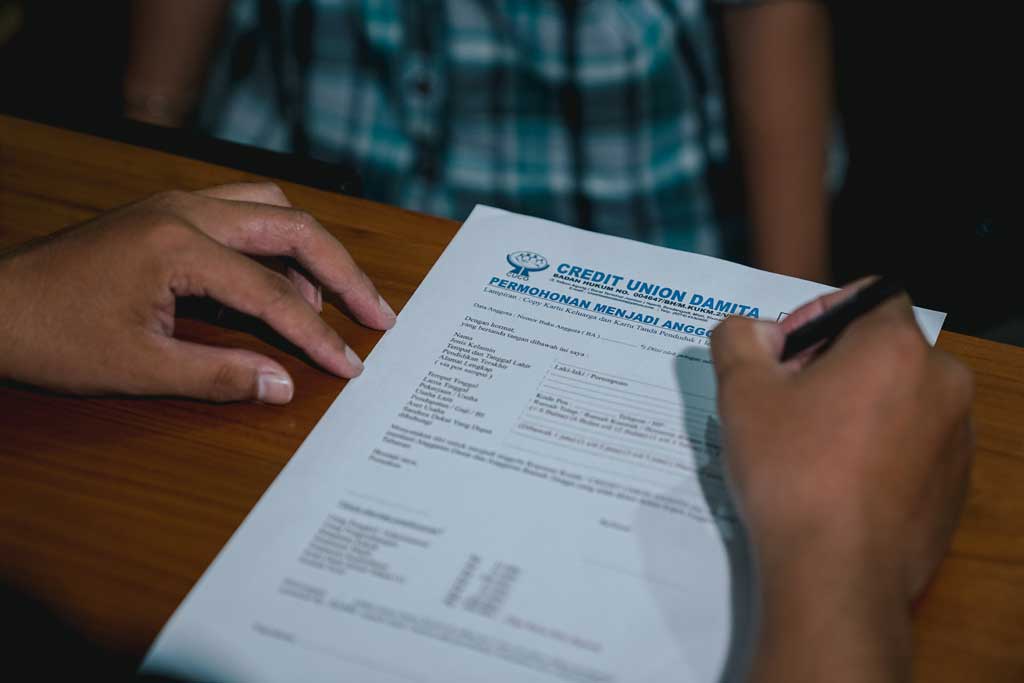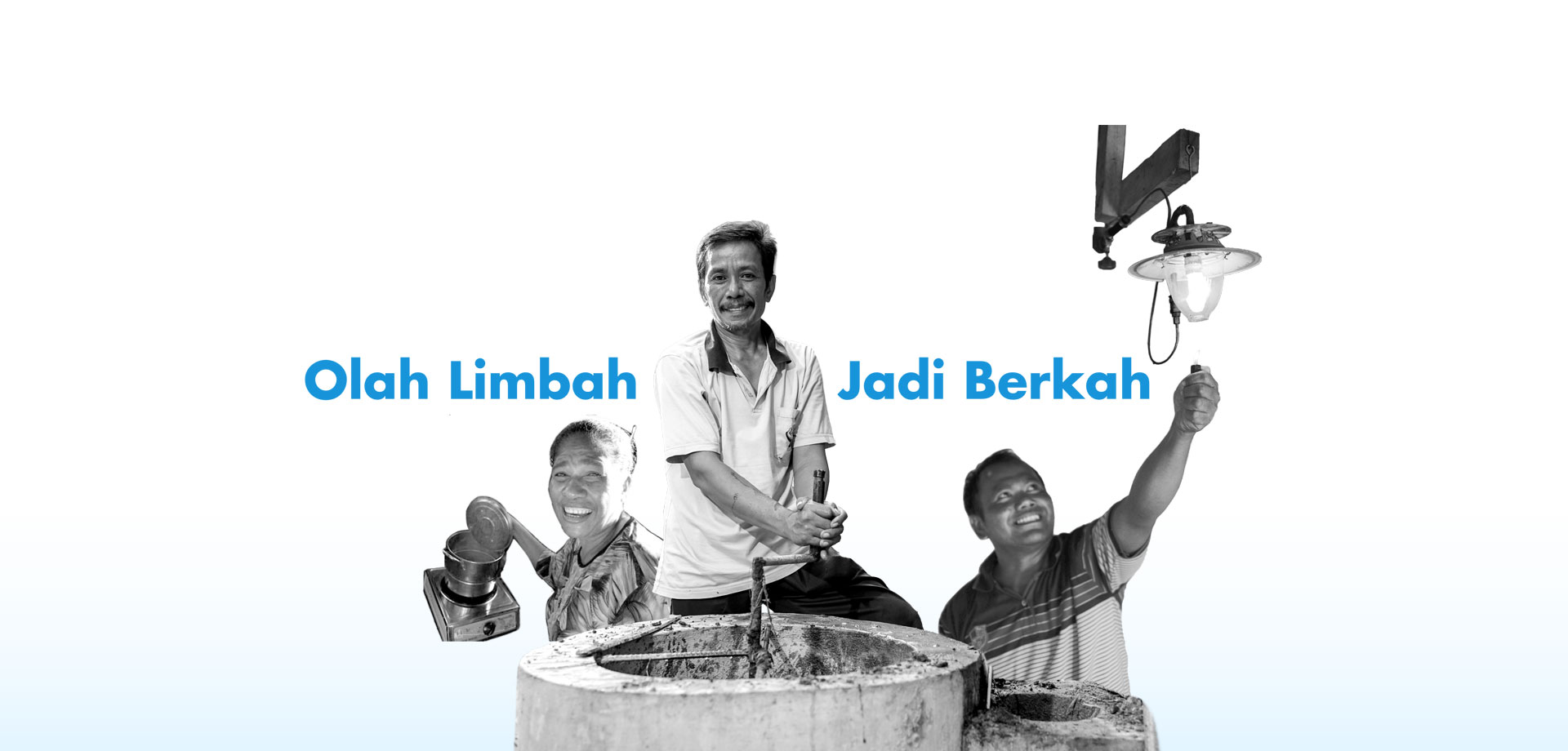BIRU PROGRAM
The Indonesia Domestic Biogas Program (IDBP) or known as BIRU Program is a multi-stakeholder program initiated by HIVOS in collaboration with the Ministry of Energy and Mineral Resources (MEMR) in 2009 and then implemented by the Rumah Energi Foundation in 2012. The BIRU program is a program that aims to disseminate renewable energy innovation through the use of biogas as a clean energy source for cooking and the use of bio-slurry (biogas waste) as a natural fertilizer.
In its application, the BIRU Program has two types of biogas technology products: concrete dome technology (Fixed-Dome) and BIOMIRU (Mini Home Biogas). Currently, the fixed-dome refers to the SNI standard. 7826: 2012, which regulates the procedures for constructing fixed dome reactors of concrete, while installing biogas networks refer to SNI. 7927: 2013.
“As a poultry farmer who uses biogas, the benefits are not only the cleaner cage, but also getting Lemna as poultry feed produced from bio-slurry.”
Mrs. Karsinah, Sleman, Central Java
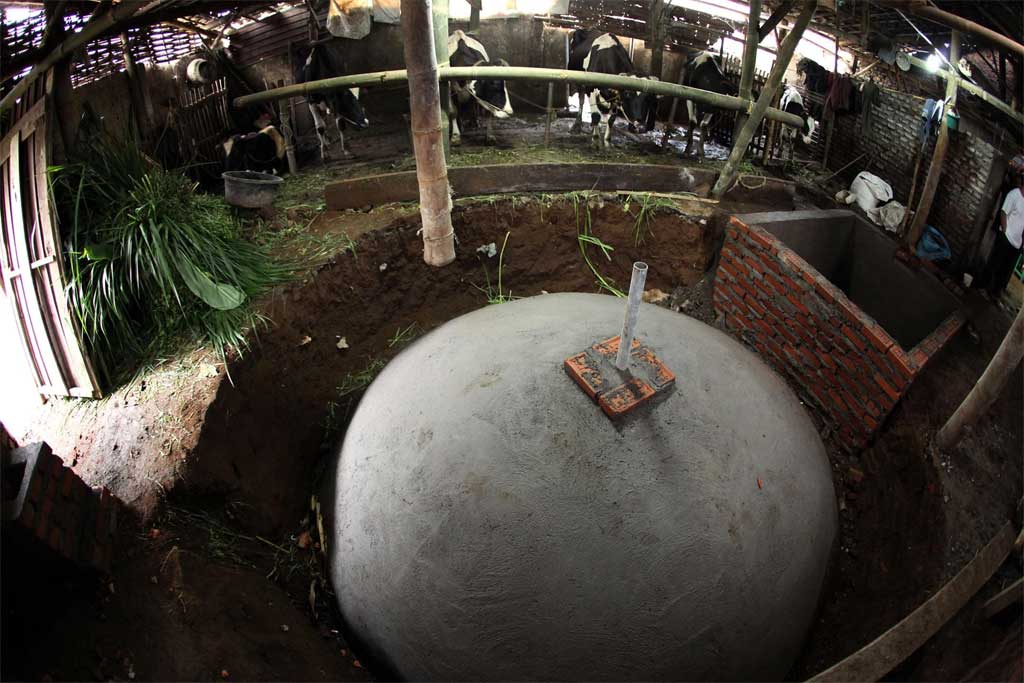
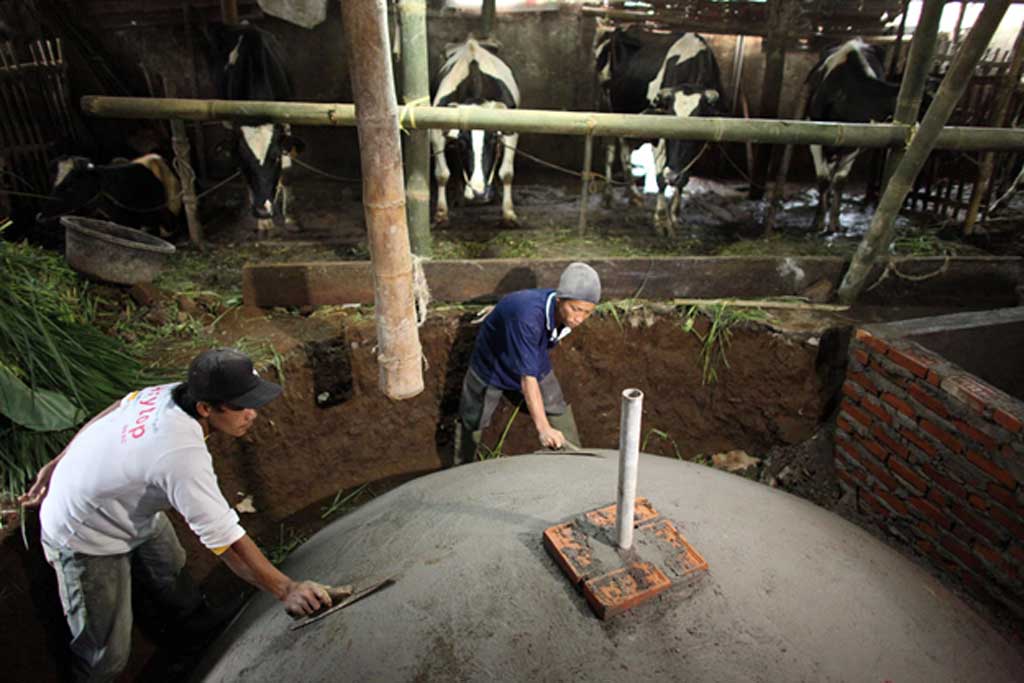
BIRU Program Distribution Map
Since its inception in May 2009 to December 2019, it has been noted that the BIRU program has built 24,769 biogas reactors in 12 provinces in Indonesia, namely Lampung, West Java, DKI Jakarta, Banten, Central Java, D.I. Yogyakarta, East Java, South Sulawesi, Central Sulawesi, Bali, West Nusa Tenggara, and East Nusa Tenggara (Sumba). The development of the BIRU program is still ongoing today, involving multi-parties.
BIRU Program Users
The BIRU program is intended to be a solution for meeting household sources of clean energy for cooking. By using mainly livestock manure to organic kitchen waste, this household biogas can help meet the needs of daily household energy sources ranging from electricity, natural fertilizers to gas for cooking so that the BIRU program is suitable for farmers, ranchers, and also urban groups who sort waste from home.
The Power of the BIRU Program
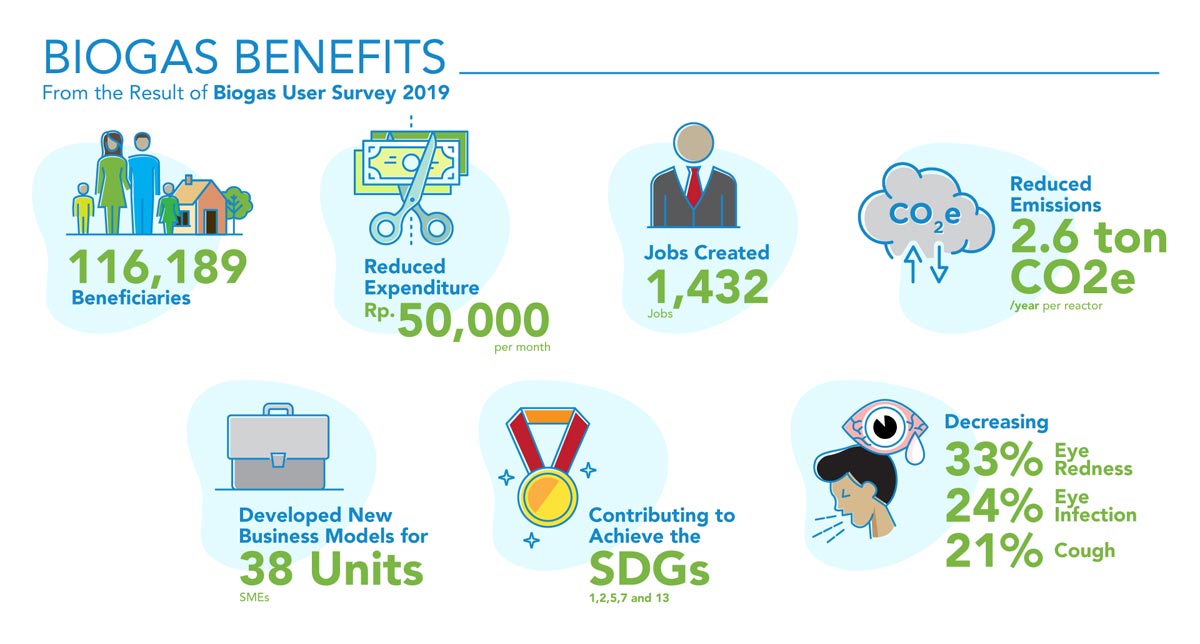
Gender Mainstreaming
The main implementer of the program, Yayasan Rumah Energi (YRE), encourages the emancipation and empowerment of women to achieve gender equality at all levels of society.
Beside providing equal access for men and women to certified biogas training, decision-making must also be approved by both partners. By having access to this certified biogas training, women also have the opportunity to benefit from biogas / bio-slurry along with knowledge about renewable technology.
BIRU Program Financing
Currently, Yayasan Rumah Energi (YRE) has a blended finance scheme with multi-stakeholder interests to finance a biogas reactor’s construction. This financing scheme will make it easier for user partners because they have collaborated with 55 cooperatives and credit unions scattered in the BIRU program implementation areas. Yayasan Rumah Energi and Hivos have collaborated with the private sector (the dairy sector, such as Nestle and milk processing cooperatives), the banking sector (BNI and Rabobank Foundation), and financial organizations (Kiva) to provide access to finance to people in need.
